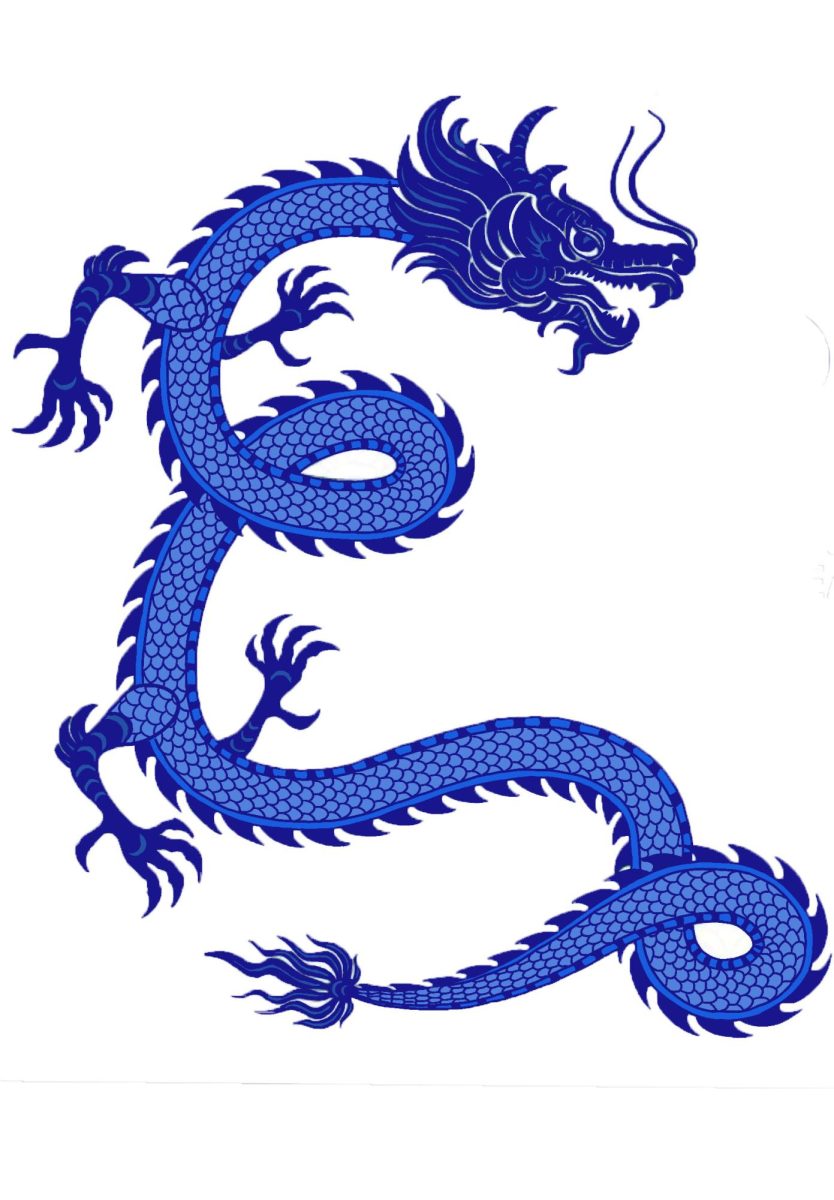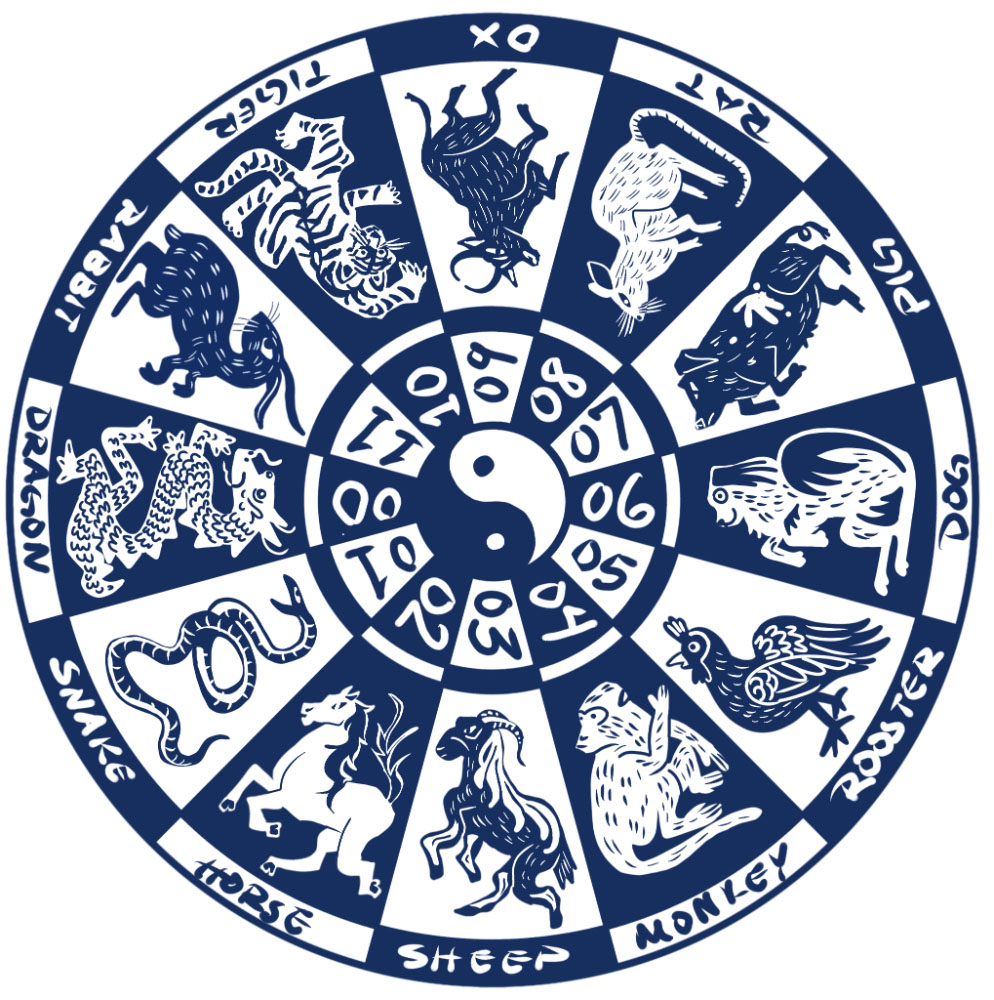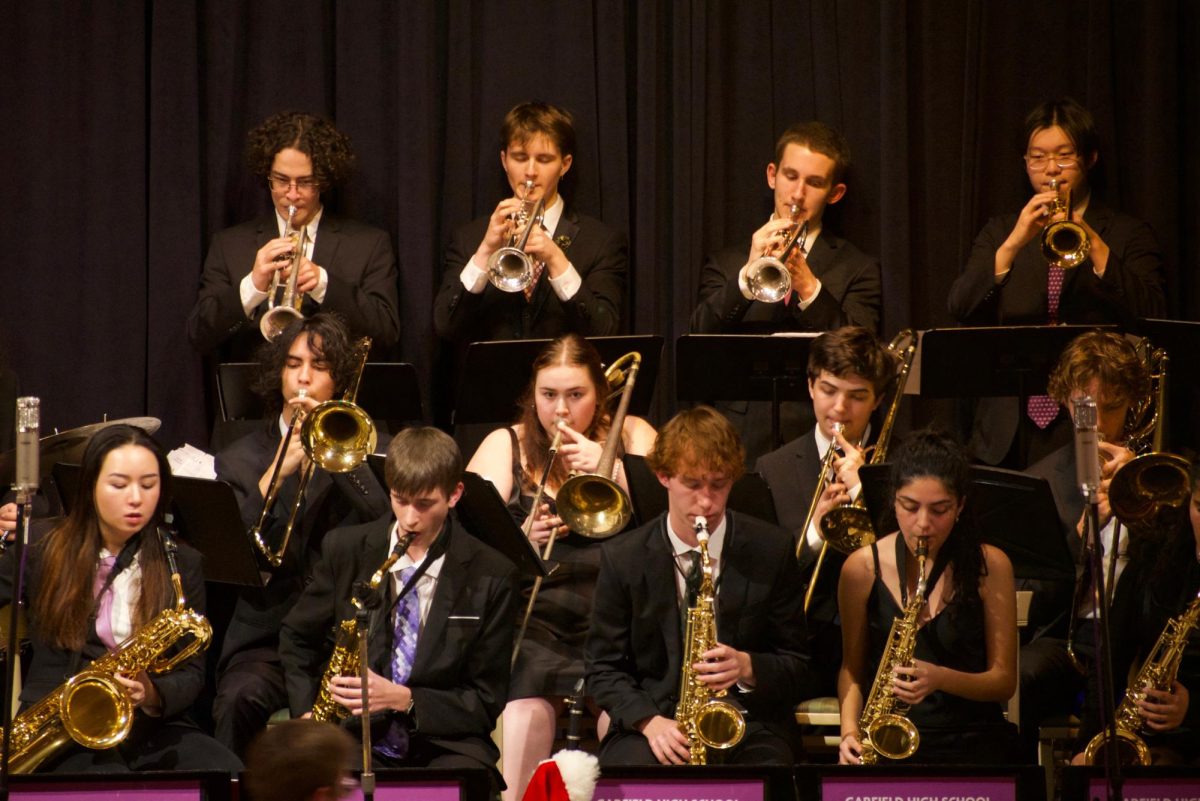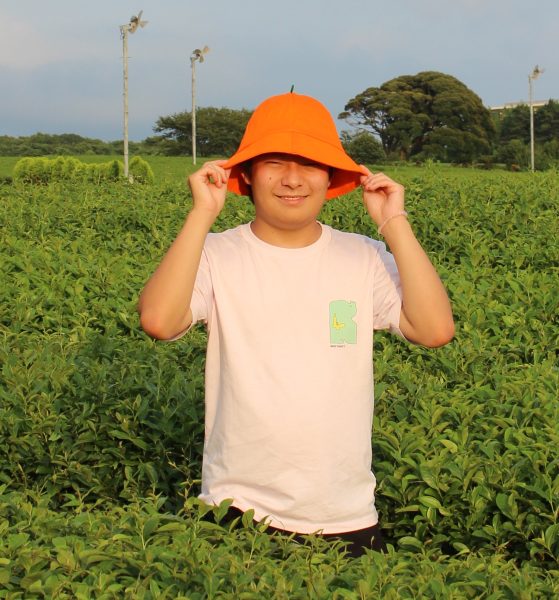Lunar New Year is a major festival celebrated in several Asian countries and widely celebrated by diaspora in communities worldwide. Though it is commonly perceived that all Asian cultures celebrate this event, this is false. Lunar New Year is celebrated in Chinese, Taiwanese, Korean, and Vietnamese cultures while not as widely celebrated in the Japanese, Filipino, and South Asian communities. For those who celebrate, the Lunar New Year is about removing bad luck and welcoming the good and prosperous while being with family and having tons of fun.
Senior Gia Nguyen, the APISU president, explained that one of her favorite traditions is attending “a New Year festival for the Vietnamese community at the Seattle Center,” where Seattle Center and Little Saigon as Tết collaborate and throw an event for the community. During Lunar New Year’s, Nguyen loves to eat and make “Bánh chưng, which is sticky rice, pork mung bean cake.” She explained that her family has a tradition of homemaking them by going to their “family friend’s house really early, like 6 AM and [they’re] there until almost 10,11 PM just making them because it’s a long process.” Even though it takes a long time, “In the end, it’s worth it and it’s fun because it’s a family bonding activity,” Nguyen said. Another one of her family practices includes visiting their “family and friends with a basket of Tangerines.”
Before New Year, Freshman Sammy Zheng who identifies as Chinese, explained that her family cleans the house in preparation for New Year, but never during. “you don’t clean during Lunar New Year to keep the luck”. Just as important is buying “new clothes because New Year, new you.” During Lunar New Year she usually “spends time with family and goes out to eat in Chinatown ‘’ at whichever restaurant is not packed to the brim with customers. During this holiday, Zheng explains that her family eats traditional foods including fish, lobster, and tangyuan (traditional Chinese rice balls in broth). One of Zheng’s favorite memories is when her “family makes tangyan and after [they] eat it while [they] watch the spring festival gala.” Not only does Zheng hang out with family during the time of Lunar New Year, but she performs at many different festivals across Seattle playing the Guzheng, which is a traditional Chinese multi-stringed plucked instrument that has movable bridges under each string.
Juniors Olivia Kang and Timothy Park who both identify as Korean, share how they celebrate Lunar New Year. One tradition Kang does is “sebae, where you bow to your elders and then they give you money.” During Sebae, family members bow down until their knees touch the floor and lean forward so that their foreheads face the ground. Once all finish bowing, they receive sabaedon which is money given to a person after they perform sebae. Juniors receive sebaedon, with both hands, from the senior in the form of an envelope. Kang explains food is a big part of Lunar New Year as well, sharing that her whole family “works together to help [her] mom make” Tteokguk (rice cake soup) explaining how it’s such a special moment to her. Park adds on saying that Lunar New Year is a time where family all comes “together when we wouldn’t come together normally. It’s like a specific date to do that. And the food itself has a lot of meaning in bringing people together” whether it be cooking “rice cake soup, making a lot of mandu, especially pot stickers.” During Lunar New Year, Kang explains that they play a lot of traditional games as well. One of these games include Gonggi which Kang shares is “like the Korean version of jacks.” In this game, they use five or more small grape-sized pebbles/stones called gonggitdol. The game is played by players tossing a stone up in the air; and before it lands, they pick up the stones from the ground and catch the stone in the air with the same hand.
The Lunar New Year zodiac signs run on a 12-year rotation with one animal for each year. The animals differ slightly depending on one’s culture. According to ancient myths, the 12 zodiac animals came to be from a race set up by the Jade Emperor or the Buddha. Animals competed against each other to cross a river and reach the finish line. The order in which the animal placed in the race became the sequence for the zodiac. Animals and myths slightly vary between each culture, but the general gist is the same.
Rat
Birth years: 1996, 2008, 2020
Traits: Ambitious, charming, talkative, resourceful, private, frugal, critical
Ox (Chinese + Korean), Buffalo (Vietnamese)
Birth years: 1997, 2009, 2021
Traits: Diligent, gentle, hardworking, reliable, patient, materialistic, stubborn
Tiger
Birth years: 1986, 1998, 2010
Traits: Confident, magnetic, idealistic, thrill-seeking, selfish
Rabbit (Chinese + Korean), Cat (Vietnamese)
Birth years: 1999, 2011, 2023
Traits: Kind, artistic, romantic, judgmental, timid, refined
Dragon
Birth years:, 2000, 2012, 2024
Traits: Outspoken, generous, intelligent, perfectionistic, egocentric, impatient
Snake
Birth years: 2001, 2013, 2025
Traits: Clever, curious, alluring, wise, anxious, calculating, jealous
Horse
Birth years: 2002, 2014, 2026
Traits: Amusing, persuasive, irresponsible, moody
Goat/Sheep
Birth years: 2003, 2015, 2027
Traits: Easygoing, empathetic, creative, cheerful, disorganized, impulsive lazy
Monkey
Birth years: 2004, 2016, 2028
Traits: Entertaining, intelligent, optimistic, fickle,
Rooster
Birth years:2005, 2017, 2029
Traits: Adventurous, charitable, funny, loyal, argumentative, boastful, self-involved
Dog
Birth years: 2006, 2018, 2030
Traits: Helpful, honest, trustworthy, unselfish, pessimistic, anxious,
Pig
Birth years: 2007, 2019, 2031
Traits: Caring, generous, smart, outgoing, fearful, impatient, materialistic
What to eat on Lunar New Year:
Jiaozi, Dumplings: Pockets of Prosperity. Being a staple of Lunar New Year festivals for centuries, it is said that eating jiaozi will transition you from old to new. The shape of the dumplings resembles ancient Chinese gold ingots, symbolizing wealth and good prosperity while the ingredients such as pork, shrimp, and veggies represent abundance.
Tangyuan, Sweet Rice Balls: These round treats are symbolic of family unity, togetherness, and the hope for a sweet and harmonious year.
Fish: For Abundance. In Chinese culture the word “yu”, which translates to fish, sounds like the word for surplus or abundance, and the presentation of the whole fish is a must. Don’t eat all of the fish though as leaving some of the dish uneaten represents the hope for abundance to carry over into the new year.
Noodles: To live long and prosper. Noodles symbolize the wish for a long and healthy life.
Graphics by Salem Bill, Mina Huynh, Gia Nguyen, and Angela Nguyen











